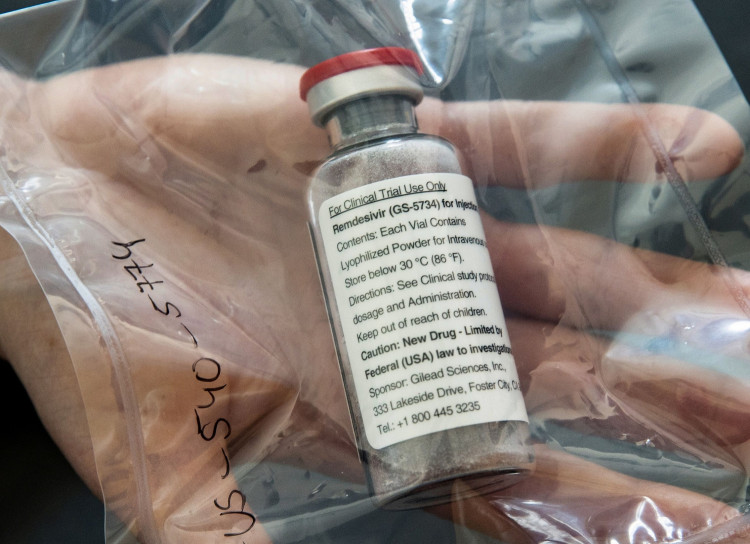Clinical data from three phase 3 human trials looking into the effectiveness of the anti-viral drug remdesivir as a cure for COVID-19 will be released later this month and in May.
Gilead Sciences, Inc., the California-based maker of remdesivir, said there are multiple ongoing Phase 3 studies designed to provide the additional data needed to determine the potential for remdesivir as a treatment for COVID-19. It still warns remdesivir is "an investigational agent that has not been licensed or approved anywhere globally, and it has not been demonstrated to be safe or effective for any use, including for the treatment of COVID-19."
The company said these ongoing studies will help doctors better determine whom to treat when to treat, and how long to treat with remdesivir. It pointed out the studies are either fully enrolled for the primary analysis or on track to fully enroll in the near future.
"We expect to share results at the end of this month from our open-label study of remdesivir in patients with severe COVID-19 disease," said Dr. Merdad Parsey, MD, Ph.D., Chief Medical Officer of Gilead Sciences. "This randomized clinical trial is fully enrolled and will compare treatment outcomes and safety following 5 or 10 days of remdesivir treatment."
By the end of May, Gilead Sciences anticipates data from its open-label study in patients with moderate COVID-19. This study is looking into five or 10 days of remdesivir versus standard of care. Also to be issued by the end of May will result from the double-blind, placebo-controlled study of remdesivir in patients across a range of disease severity conducted by the U.S. National Institute of Allergy and Infectious Diseases (NIAID) headed by Dr. Anthony Fauci.
On the other hand, Gilead Sciences took issue with an inadvertently released draft document from a discontinued clinical trial in China alleging disappointing results from remdesivir. Gilead emphasized the China clinical trial "was terminated early due to low enrollment." The trial was conducted in Wuhan, the source of the global COVID-19 pandemic that began in December 2019.
Dr. Parsey also said a draft document showing disappointing results from the discontinued China clinical trial contained "inappropriate characterizations." He also said the study's findings are "inconclusive."
Confusion over remdesivir's efficacy erupted after someone at the World Health Organization (WHO) posted the alleged results of the China trial on the WHO website. The results were later removed from the website. Medical website STAT, however, downloaded the results before its removal.
STAT wrote the China clinical trial apparently failed to speed the improvement of patients with Covid-19 or prevent them from dying. WHO expressed regret at the inexplicable episode.
"A draft document was provided by the authors to WHO and inadvertently posted on the website and taken down as soon as the mistake was noticed. The manuscript is undergoing peer review and we are waiting for a final version before WHO comments," said WHO spokesperson Tarik Jasarevic.
Dr. Parsey said the China trial was terminated early due to low enrollment "and, as a result, it was underpowered to enable statistically meaningful conclusions. As such, the study results are inconclusive, though trends in the data suggest a potential benefit for remdesivir, particularly among patients treated early in the disease."
He said available data on this trial has been submitted for peer-reviewed publication. Gilead Sciences will provide more detailed information from this study in the near future. Dr. Parsey said the results of the trial in China, and those of the compassionate use cohort of more critically ill patients published April 10, add to a growing but still inconclusive body of evidence for remdesivir.






